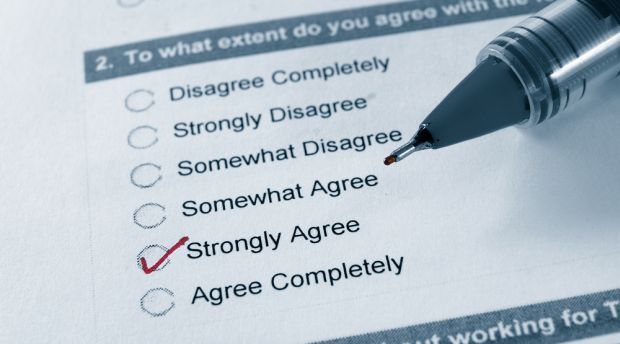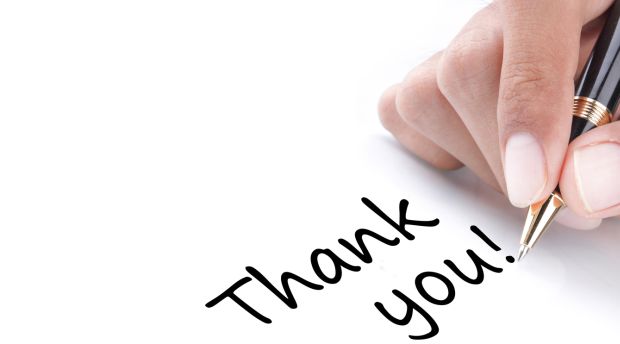Admitting Your Weaknesses, Dressing for Interviews, and More Interview Questions Answered
Post Views 0Your Expectations of a Company
Following Up on Informational Interviews
Dressing for Interviews at Financial Institutions
Dear Genie,
Is there life after stripping? I am about to graduate from college with a degree in anthropology. The only way I could pay for college was to work in a strip club. I am now wondering how I can cover that up in an interview. I do want to say that I worked my way through college, but I don’t want to say that I was a stripper because of the assumptions others might make about my character. How do I handle this issue?
Hiding the Past
Dear Hider,
Of course there is life after stripping. There’s even life after McDonalds for those who worked their way through school asking “would you like fries with that ?” First, there is no reason why an employer needs to know about “irrelevant” information. While you did earn funds and learn interesting lessons in a “unique” work environment, I don’t think you should note this on your résumé or try to leverage this experience towards your future career goals. In some situations stating that you “worked your way through college,” may be overrated, or the negative consequences outweigh the positive.
You should generate discussions on particular job capabilities, most likely addressing how your studies provided skills-building experiences. Focus on the future, not on the past. While your story may be unique, and worthy of a book or mini-series, it isn’t one that is necessary to tell during job search interactions. Strategies of omission are not the same as deceptive strategies of commission. Clearly, a targeted résumé and very, very focused job search goals would be helpful in your circumstances. Anyone can overcome a lack of experience with increased knowledge and increased focus. Know as much as possible about your field(s) of interest, meet as many people as you can within those fields (information conversations and shadowing experiences), and offer to help with as many projects as you can over the length of your job search. The key to unlocking your dilemma is a sense of focus. What do you want to do? Those seeking ANYthing, often find NOthing. You must identify and prioritize areas of interests. Would marketing research, advertising, public relations, retail or sales be of interest? Could you see yourself teaching English as a second language here or overseas? Would it be interesting to assist developmentally disabled adults or children in a residential or day facility? Would you like to teach anthropology, dance, or any other subject in a private secondary school? What would you find “intriguing?”
Your Expectations of a Company
Dear Genie,
In an interview, how would you answer the question, “what do you expect from this company?”
At a Loss for Words
Dear Speechless,
Answer not what the company can do for your, but what you can do for the company, while projecting knowledge of the specific job and career path. Use this question as an opportunity to show that you know what would be expected of you within the capacities of the job and, most specifically, what type of reinforcement, skills, and rewards you will receive. State ideals regarding a progression from one level of responsibility to another and specific skill sets you wish to enhance. Reflect what motivates you and how you might realistically progress up a career path. Also, after giving your answer ask about what the company would expect of you, how your progress and performance would be judged and who will help you reach skill focused goals.
Expect the most of yourself, not of the company, and say it. GO FOR IT!
Admitting Your Weaknesses
Dear Genie,
The question I have the most problem with in interviews is the name your weaknesses question. How can I be honest but also make them want to hire me? I have an interview to be a police officer coming up. All the things I have come up with are not desirable qualities for a potential police officer. I am shy. My husband says I lack self-confidence and don’t give myself enough credit for my abilities. Any recommendations? Thanks
Honest Cop
Dear True Blue,
While you should be “honest,” before answering this question, or any interview query, you should always internally preface your response with the statement “thinking about the job.” Thus, when identifying weaknesses you should think about an areas which you are prepared to immediately strengthen, not necessarily ones which would be interpreted as “make or break” characteristics. For a police officer interview an appropriate answer may include: “one area which I wish to immediately strengthen involves my ability to project all of the assertiveness I possess, but haven’t had the opportunity to use” or “because a good officer must be a team member, yet clearly identify responsibilities and, in order to improve, take credit for successful use of appropriate skills and techniques, I would like to enhance my abilities to objectively accept credit for achievements.” Always think about real attributes which can be improved. Do not lie, but focus on qualities which are required to succeed on the job, and ones which you can most definitely improve upon given commitment and hard work. Also, don’t leave the “weakness” floating. Always state what you would do to meet your goals for improvement after you have cited the weakness. In the case of the police interview, you can show how training will achieve the desired results, revealing that you have discuss what would be involved with someone who knows. Show how much you know and, as a result, how much you want the job.
Everyone has “weaknesses,” but very few can honestly state what “strengths” would be required to achieve success within specific career fields. You’re a strong person and an even stronger candidate. GO FOR IT!
Telephone Interviews
Dear Genie,
Do you have any tips on telephone interviews?
Butterfield
Dear Butter,
While telephone interviews do not allow you to visit and get a hands-on feel for the company, they do have certain advantages: They tend to be less stressful than in-person interviews, you can wear whatever you like, and you don’t have to worry about forgetting a comb or a breath mint.
People often resort to telephone interviews when the distance between employer and candidate is too great. In addition, many companies request telephone interviews to conduct preliminary evaluations in order to create a pool of applicants, or to narrow a pool to a few final candidates. If you can afford to fly out to an interview – and you believe you are a serious candidate for the job – make the effort. Doing so indicates enthusiasm and confidence in your abilities. If you cannot afford the trip, make that clear to the interviewer.
Despite the fact that you may conduct a telephone interview in your bathrobe and slippers, you should nonetheless treat the experience as seriously as you would an in-person interview. View this conversation as an opportunity to win a face-to-face interview.
Before
- Research the company, the position and the employer as carefully as possible.
- Next to your telephone, neatly arrange your current résumé, a list of answers to key questions, a list of points, skills and achievements that you want to mention, your calendar, your company research notes, notepad, pen, calculator.
During
- Try to be the one placing the call so you won’t have to sit by the phone feeling nervous. If an interviewer calls at an unscheduled time, ask if you can call back. Don’t forgo the opportunity to prepare.
- Speak clearly and audibly.
- Use correct grammar and complete sentences. Remember to speak with warmth and enthusiasm, just as you would in a face-to-face interview.
- Take notes to prepare you for the next interview.
- If the interviewer puts you on hold, jot down the topic you had been discussing, so you can pick up where you left off.
- Remember to sell yourself and your skills, just as you would face-to-face.
After Don’t forget to send a thank-you note!
Bored Interviewers
Dear Genie,
How do you deal with interviewers who don’t seem interested or who appear bored?
Snoozin’ and Losin’
Dear Snoozin’,
Excellent question. First recognize that you don’t know your interviewer well enough to determine whether he/she actually is bored or whether the interviewer is distracted by pressing work problems, personal issues, or bad headache. The interview may even be using an appearance of boredom to test your reaction. So, most importantly, don’t take personally your interviewer’s mood or spend valuable mental energy trying to psychoanalyze a stranger. That being said, you shouldn’t simply ignore your gut feelings, and there are things you can do to enliven the living dead (metaphorically speaking, of course).
- Rule of life: People love talking about themselves. Ergo, get the interviewer to discuss something that interests him/her. You may even get lucky and discover you have something in common. Questions such as “What is your background and how did you come to work in the XYZ industry?” should yield precious conversational seeds. One cautionary note: Be sincere. Don’t pretend to share an interest when you don’t – the interviewer will detect your false consideration.
- Rule of public speaking: Avoid monotones. Maybe, without realizing it, you have a tendency to drone. Be sure to vary your tone and tempo. Even better, conduct a mock interview with a trusted friend and ask him/her to take note of your conversational style. Many career offices offer this opportunity as well – some will even videotape you.
- Rule of interviewing: Be enthusiastic. In a recent study, interviewers were asked which personal attribute they looked for most in a candidate; 72% said enthusiasm. After all, if you aren’t excited about this job/company, why should the interviewer be excited about you?
Following Up on Informational Interviews
Dear Genie,
- I went on the informational interviews. All went well and afterwards I sent them a polite thank-you note. These are companies I want to work for after I graduate. How to I approach them now about getting a job?
Emily Post
Dear Ms. Post,
No problem. You’ve set yourself up beautifully: you have nice relationships with insiders at several firms where you want to work. Simply drop your friends a résumé with a friendly note saying you’ll be graduating soon and after deep consideration (in which you were aided by their input), you’ve decided you want to work in this field and at their firm, and would they please keep you in mind should anything become available.
Dealing with a Low GPA
Dear Genie,
Hi. I’m a senior electrical engineering student and about to enter the wonderful world of interviewing for that wonderful first real job.
My problem is this: I have been on interviews before, and the interview goes well until they ask, “What’s your GPA?” Now, I have been advised that since mine is a 2.3/4.0 to leave it off the résumé and handle the question if and when it comes up. I’ve never lied about it, or tried to make it sound better than it is, but the minute I say, “2.3,” I can hear the toilet flush.
What should I do to recover some ground with the recruiter after I drop the bomb?
Underachiever
Dear Einstein,
I commend your judgment, both in choosing to omit your GPA on your résumé and in being honest about it when asked directly. Nonetheless, you do have a problem, because employers tend to prefer candidates with high GPAs.
I have a question for you: What is your GPA in your major? If it’s higher than your total GPA, another honest, but more flattering, response would be, “My GPA is 3.1 in my major.” The recruiter may then ask for your overall GPA, but at least you’ve framed the discussion by telling him/her that when the work really counts, you come through.
But what if your GPA in your major isn’t higher than your overall GPA? It’s important to put your grades into some kind of context. There must be a (truthful!) reason for your less than stellar performance. Were you working part-time to help pay for school and it cut into your study hours? Did you have a serious personal problem one semester that made your grades take a nosedive? Do you have a learning disability? Employers should understand these kinds of issues. But if you tell them your GPA was 2.3 and offer no explanation, then they have nothing positive to believe.
Dressing for Interviews at Financial Institutions
Dear Genie,
Could you please forward some tips on proper dress attire for an interview at a financial institution? I am a twenty year old female with brown hair and a fair complexion. I would like tips on styles, fabrics, colors and accessories.
Style-ly Challenged
Dear Style,
For jobs in the financial industry, think conservative. No pants, no loud colors, no short skirts, no high heels, no big hair, no bright make-up, no dangley earrings, no low cut blouses, no super long finger nails, no shiny fabrics. Come to think of it, dressing for financial jobs may be easier than dressing for most other jobs because your choices are so limited! Here’s a brief overview of what to wear:
Clothing
Suits are best, and even though it’s the nineties, stick with skirts (unless the firm is particularly laid back). Choose colors that look best on you, but keep them quiet with no bold patterns. Skirts can be at the knee or an inch or two above. Blouses in silk or fine cotton, and sweaters in merino wool, silk or cashmere look best. Hose should be nude or a neutral color like black, navy, brown, or gray. If you do go with one of the neutral colors, make sure you match your hose to your shoes (brown hose with brown shoes; black hose with black shoes). Also, stay away from white and off-white hose in the winter (personally, I never like white or off-white hose, but that’s only my opinion).
Jewelry
Do wear jewelry, but keep it minimal. Earrings can be studs or small hoops (if you have a third hole, leave it empty); do not wear more than two rings at once; and don’t wear jewelry on more than three parts of your body (maximum jewelry would be earrings, one ring and a necklace; too much would be earrings, one ring, a necklace and a bracelet). If you want to wear a tasteful, decorative scarf, eliminate a piece of jewelry.
Shoes
Brown, black or navy (only with navy suits). Heals under two inches. Not too funky. No platforms.
Bag
Ideally, your bag should match your shoes. But if you stick to black or brown, you’re safe. Do not carry more than two bags—a hand bag and a portfolio, for instance. Or you can carry one nice leather tote. But make sure your bag isn’t as big as a suitcase, and keep contents organized—the last thing you want is to go searching for a pen among used tissues, your current paperback novel, lipsticks and your high school prom photo!
Hair and Make-up
Keep hair neat, clean and not too big. Keep make-up fairly neutral, not too heavy, and reserve this season’s gooey lip glosses for your personal life.
Saving Your Good Name
Dear Genie,
Suppose a past internship listed on your résumé reveals you worked in a company that used unethical tactics to succeed in the field. Should a potential permanent employer question my work ethics because of my association with this business? How do I prove that I learned a lot about what not to do without bad-mouthing my past boss?
Mud on my shoes
Dear Mud,
Since you were an intern at the time, this association really shouldn’t be turned into a big character issue by a prospective employer. But to be on the safe side, be proactive and bring up the controversial subject yourself during your interview before your interviewer does. Raising the subject before he/she does is helpful, because it shows that you’re not trying to hide anything and prevents you from being put on the defensive.
The most diplomatic way to bring it up is to simply inquire whether the company that is interviewing you has an official ethics policy and make it clear that it’s very important to you that they do. You can even ask for a copy of it. Your concern implies that you experienced a problem of that nature in the past and that you wish to avoid a similar situation in the future. It shows that you care about business ethics without even having to bring up your past experience specifically. Should the interviewer choose to pursue the subject further, your position will already be clear.
If the interviewer happens to raise the topic before you’ve had a chance to do so yourself, don’t panic. When you discuss it, remain positive; don’t dwell on the negatives. Talk about what you learned from the situation and from being in that kind of work environment. Explain how your own work practices differ from the negative ones you witnessed there, and how the experience has taught you even more about the importance of maintaining high business standards. You can also emphasize how this experience influenced your decision to leave the company or to seek work elsewhere. This approach will help you distance yourself from the situation and show your professional merits—all of which you can do without bad-mouthing or getting personal.
Job Offers and Rejection
Dear Genie,
I recently interviewed for a job that would be convenient to accept based on factors such as location, hours, etc., but I have reason to believe that it doesn’t offer much room for advancement. If I’m offered the job should I take it?
Not Sure
Dear Not,
I would not recommend accepting a job merely on the basis of convenience. Even if you do have special considerations that make location and hours significant factors in your decision making, you still need to measure the overall value of any prospective job opportunity. If you are feeling pressured to make a quick decision (“hey, this job offer is a real offer: it comes with a paycheck and some significant conveniences, and let’s face it — I need a job”), I suggest that you keep in mind that you should always make an informed decision. Based on your lack-luster description, this does not sound like a job that really interests you. It may seem like a satisfactory opportunity based on some short-term criteria, but you still want to ensure that you will benefit from the work experience and environment, and determine whether you will have the opportunity to benefit from some longer term rewards as well.
Take some time to reassess the organization, the position and the compensation package being offered to you. When you weigh these factors together, you should feel confident that it will be worth your while to stay in this position for at least a year, and that you can expect to be satisfied with your day to day responsibilities. Unless otherwise stated, most employers will expect you to adhere to the standard “one-year” rule. That year could seem like an eternity if your planning is too short-sighted.
Here are some additional questions you might want to consider:
- How is this organization regarded within the industry?
- If it is a big name firm, is the position itself worthwhile? Or are you being tempted by the sound of working for a noteworthy company to settle for a fairly unsubstantive or uninteresting job?
- Perhaps it a smaller firm with a lower profile, but might it offer you more room to learn and grow than a bigger organization?
- You may eventually have to leave this organization to move forward in the industry. Will this opportunity put you in an advantageous position and give you the necessary skills to do so?
- How do you feel about the responsibilities you will be given? Does the work appeal to you? Would it be a valuable learning experience?
- Is the compensation package you are being offered competitive?
- Would the opportunity be worthwhile if you were able to negotiate for a better arrangement?
At the same time, keep in mind that if you are looking for your first job, you shouldn’t underestimate the importance of getting some general work experience as well as beginning to accumulate specific experience in your field of interest. The opportunity to acquire transferable skills will help you throughout the long professional life ahead of you. Do not toss away an opportunity too quickly without considering whether there is room for you to grow as a professional individual, even if you may not have the room to move up within this organization. Careers don’t get started the way they used to. Don’t get trapped in the old-fashioned notion that you need to get into a company on the ground level and be able to work your way up the corporate ladder. Find a opportunity that will enhance your professional experience within a reasonable amount of time on the job, and decide whether there are enough benefits to make your time there a profitable investment.
Dear Genie,
I just interviewed for a job last week that I thought I had in the bag. I just received a letter stating that after review of my qualifications I was not suited for the company and wishing me luck on my future endeavors. Should I call this person who sent me a letter and ask what skills I was lacking so that I might improve on those skills if a position came up in the future, or should I simply write off the company and spend my energy elsewhere?
Turned Down
Dear Down,
There is no single answer to your question. Deciding whether or not to explore this matter further is, well let’s just say, very situational. I assume your rejection letter came from your interviewer. Take some time to reassess the rapport you established with this person. If you made any notes after your interview, this is a good time to review them. (If not, I suggest you get in the habit of doing so in the future.) Was this person open and receptive when you met? Did this person seem friendly and amenable to helping out a newcomer to the field?
You may be able to get some sense of this from your correspondence. Did your rejection letter sound curt or canned, or did it have a personal touch? Were you offered you any form of encouragement or the opportunity to receive any further input? If you were, consider taking this person up on their offer. If, on the other hand, your interviewer appears to be perpetually busy, unapproachable or uninterested, you may be better off leaving the situation alone.
Answer as many questions as you can on your own before you make any request. Did you follow all of the appropriate steps in pursuing this job? Did you do your homework before your interview? Did you send a thank you note promptly after your meeting? You might wish to review the situation with someone you can trust — perhaps a friend/friend of the family in this field, someone with whom you informational interviewed, or the person through whom you learned about this job opportunity.
If you find you still have questions and have determined that there is some room to bring up the subject with your interviewer, I would generally advise that you first make a written request. You are looking for information that can be useful for your professional future, but not at the risk of alienating someone by putting him/her on the spot.
If this was an on-campus interview, first check with your career services office to see how they can assist you. They will often have a system in place to benefit students in precisely this situation and can tell you whether it would be more appropriate to write a letter or to call. They might even be able to make the call for you.
If this is an independent matter, you might try something like this: write a very professional and friendly letter thanking the interviewer again for your meeting. Keep in mind that you do not simply want to repeat the thank you letter that you sent right after your interview. Mention a few specific reasons why you were impressed with the organization, what you learned from this individual, thank them for this insight and for their consideration, and wish them well. Be sincere, but not too effusive. Add something like, “I would appreciate any advice you could offer that might help me better demonstrate my qualifications for a similar position in the future. I look forward to hearing from you at your earliest convenience, and I will follow up with you in the next week or two.” Sign your letter cordially and then follow up in a week with a phone call.
Knowing What to Wear
Dear Genie,
I’m not sure I understand what to wear to an interview. Besides, isn’t it illegal if I don’t get hired because of what I was wearing?
All Dressed Up with No Place to Go
Dear Dressed,
Obviously your personal taste is not a sufficient reason to be overlooked as a serious job candidate. But don’t forget that the interview is your chance to make an impression, and there are many factors—some that are very subjective—that contribute to making that impression a positive one. These include having some plain common sense, good manners, and the wherewithal to realize that your interview is the time to present yourself in an appropriate, professional manner and not to make a personal fashion statement (unless perhaps you’re hoping to enter the fashion industry!).
Choosing your interview attire is part of knowing how to “package” yourself as a job candidate. Part of your homework before your interview—right along with doing your company research and printing up extra résumés—is to find out the standard dress code for your desired industry and position. What’s most appropriate to wear can vary a bit depending on the type of company. For example, if you’re interviewing at a law firm, you’ll almost invariably need a suit. On the other hand, if you’re looking for a job in the arts, you can certainly get away with something a bit more casual. The best way to determine what’s expected is to consult with some advisors, perhaps the business contact who told you about the job opening or a friend who interviewed with a similar type of company.
If you don’t have someone to ask (though I find that hard to believe), you should always err on the conservative side. There are reasons why so many people recommend dressing a bit more conservatively during an interview. You’re trying to convey that you are a dependable person who can be counted on to pay attention to details. You want your business attire to reflect that image.
Knowing some of the standard tricks of the trade will also help you dress right for an interview. Here are some general things to keep in mind:
- You don’t need to spend a lot of money to dress right—there’s no need to go out and by a new designer outfit, since it’s not appropriate to overdress either.
- You do need to be well-put together and look professional—details count and get noticed: no matter what you wear, it should be clean, tidy and neatly pressed.
- It’s not the brand name you wear, but how diligent you are about taking care of your presentation—that means avoid wearing scuffed shoes and clothing with missing buttons. Take the time to mend and polish your things.
To put it in some more specific terms, when in doubt, men should wear a suit, or at least a nice sport coat and tie—nothing too highly styled, everything immaculately cleaned. Women should wear something comparable, a suit or a blouse and a business-length skirt (perhaps with a jacket), a conservative/tailored dress, or maybe a pantsuit. I’m not saying that pants are inappropriate for a woman to wear on an interview, but if you don’t know the dress code, the more conservative choice would be a skirt.
If you’re not going the fashion route, but are still concerned with preserving the integrity of your “image,” I encourage you to think about it this way: you don’t need to look “stuffy,” but your interview image should reflect your most professional attitudes. You’ll have plenty of opportunity to share “who you really are” with your co-workers after you get the job.
Illegal Questions
Dear Genie,
I know there are some questions that are illegal to ask in an interview. What are they, and how should I respond if someone asks me one of them?
Sincerely,
Law and Order
Dear Law,
Anti-discrimination laws forbid potential employers from not hiring someone on the basis of race, religion, color, national origin, sex, age, disability, marital status, sexual orientation and arrest record. Therefore, questions that require you to disclose this type of information are illegal. Some of these questions are, “Are you married?” “How old are you?” “Are you gay?” “What is your religious background?” etc. Many employers who ask these questions are not racist, sexist, ageist, or otherwise trying to weed out candidates for the wrong reasons. More often, either they do not know these questions are illegal or they have chosen the wrong way of expressing an otherwise legitimate concern. For instance, the interviewer who asks whether you are married may actually want to know whether you would have a problem relocating. You can answer the question if you wish, but you may feel uncomfortable about it later. Therefore, while it is within your legal right to respond to these kinds of questions by saying, “I chose not to answer that question because, as you may or may not know, it is illegal” I would suggest a milder approach: try to address the underlying concern. When the interviewer asks the marriage question, respond by saying, “I have no problem with frequent travel or even relocation.” Or if they ask how old you are, you can say, “I feel completely comfortable with the level of responsibility inherent in this job.” If an interviewer asks a question that isn’t so easy to analyze, you can simply say, “I’m not sure how that relates to the job. Can you explain your concern more explicitly?”
For a lawyer’s perspective on the subject, check out LawCrossing.com and the articles there.
Admitting Your Weaknesses, Dressing for Interviews, and More Interview Questions Answered by Harrison Barnes



 Should You Ask for More Vacation Time?
Should You Ask for More Vacation Time?  Should You Tell Your Supervisor You Need Time Off to Interview?
Should You Tell Your Supervisor You Need Time Off to Interview?  Can Your Employer Take on Your Student Debt?
Can Your Employer Take on Your Student Debt?  Do I Have to Complete a Character Profile to Get a Job?
Do I Have to Complete a Character Profile to Get a Job?  What Am I Doing Wrong in My Interviews?
What Am I Doing Wrong in My Interviews?  How to Address Concerns in a Job Interview
How to Address Concerns in a Job Interview  Sending Thank You Notes
Sending Thank You Notes  How Should I Approach High Tech Job Interviews?
How Should I Approach High Tech Job Interviews?